Top 10 best diesel generator in China introduce,list main products and website if have
Here are the top 10 diesel generator manufacturers in China, along with their main products and websites:
1. Cummins (China)
– Main Products: Diesel generators ranging from 20 kVA to 3000 kVA.
– Website: [Cummins](https://www.cummins.com.cn/)
2. Weichai Power
– Main Products: Diesel engines, generator sets, and power systems.
– Website: [Weichai Power](http://en.weichai.com/)
3. Yuchai Group
– Main Products: Diesel generators from 8 kW to 2800 kW.
– Website: [Yuchai Group](http://en.yuchai.com/)
4. Perkins (China)
– Main Products: Diesel generator sets from 10 kVA to 2500 kVA.
– Website: [Perkins](http://www.perkins.com/)
5. Shangchai (Shanghai Diesel Engine Co., Ltd.)
– Main Products: Diesel engines and generator sets.
– Website: [Shangchai](http://www.sdec.com.cn/)
6. Jiangsu Starlight Electricity Equipments Co., Ltd.
– Main Products: Diesel generators from 20 kVA to 2500 kVA.
– Website: [Starlight](http://www.dieselgeneratortech.com/)
7. SDEC (Shanghai Diesel Engine Co., Ltd.)
– Main Products: Diesel engines, generator sets, and power units.
– Website: [SDEC](http://www.sdec.com.cn/)
8. FAWDE (FAW Jiefang Automotive Co., Ltd. Wuxi Diesel Engine Works)
– Main Products: Diesel engines, generator sets, and power systems.
– Website: [FAWDE](http://www.fawde.com.cn/)
9. Lovol (Tianjin Lovol Engines Co., Ltd.)
– Main Products: Diesel engines, generator sets, and power solutions.
– Website: [Lovol](http://www.lovol.com/)
10. Yangdong Co., Ltd.
– Main Products: Diesel engines and generator sets.
– Website: [Yangdong](http://www.yangdong.com.cn/)
These companies are recognized for their reliable and high-quality diesel generators, catering to both domestic and international markets.
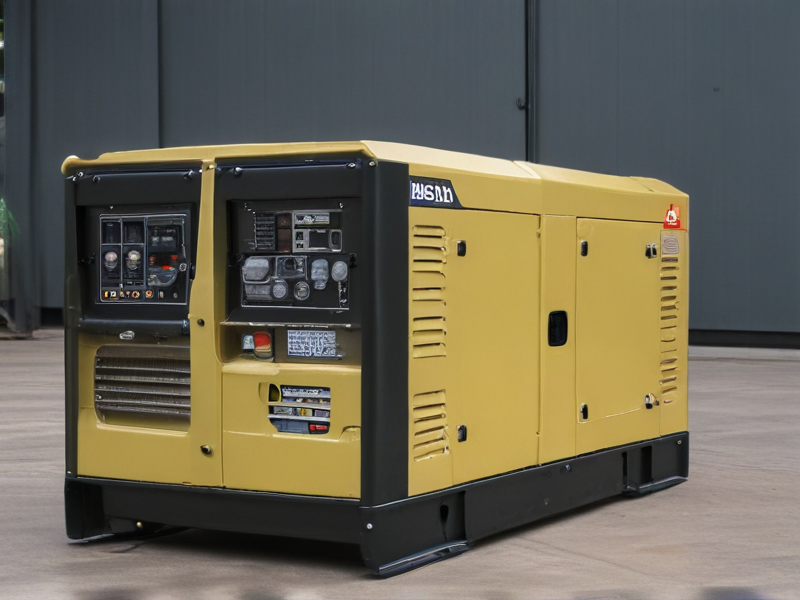
Types of best diesel generator
Diesel generators are categorized based on their design, capacity, and applications. Here are some of the best types:
1. Portable Diesel Generators:
– Use: Ideal for temporary power needs at construction sites, outdoor events, and residential backup.
– Features: Compact, easy to transport, and relatively lower power output (typically up to 15 kW).
2. Inverter Diesel Generators:
– Use: Suitable for sensitive electronic equipment due to stable and clean power output.
– Features: Efficient, quiet operation, and provides power ranging from 1 kW to 5 kW.
3. Standby Diesel Generators:
– Use: Permanent installation for emergency power supply in homes, hospitals, data centers, and commercial buildings.
– Features: Automatically start during power outages, high reliability, and power capacities from 7 kW to several megawatts.
4. Industrial Diesel Generators:
– Use: Power large industrial operations, manufacturing plants, and mining sites.
– Features: High power output (up to several megawatts), robust construction, and designed for continuous or prime power supply.
5. Marine Diesel Generators:
– Use: Provide power for ships and marine vessels.
– Features: Built to withstand harsh marine environments, varying power outputs, and specialized cooling systems.
6. Residential Diesel Generators:
– Use: Backup power for homes.
– Features: Compact, quieter operation compared to larger models, power output generally between 5 kW and 20 kW.
Top Brands:
– Caterpillar (CAT): Known for durability and extensive service networks.
– Cummins: Renowned for high performance and reliability.
– Generac: Popular for residential and small commercial generators.
– Kohler: Offers a wide range of high-quality generators for various applications.
Each type of diesel generator serves a specific need, from small portable units for temporary use to large industrial models capable of powering extensive operations.
Pros and Cons of Using best diesel generator
Pros of Using the Best Diesel Generator
1. Fuel Efficiency: Diesel generators are more fuel-efficient compared to their gasoline counterparts, which means lower operational costs over time.
2. Durability and Longevity: High-quality diesel generators are built to last, often running for thousands of hours before requiring significant maintenance.
3. Power Output: Diesel generators generally produce more power, making them suitable for heavy-duty applications and industrial use.
4. Reliability: Diesel engines are known for their reliability and ability to start up even in cold weather, ensuring consistent power supply.
5. Lower Maintenance: They typically require less frequent maintenance because they don’t have spark plugs or carburetors, reducing downtime and maintenance costs.
6. Safety: Diesel fuel is less flammable than gasoline, making diesel generators a safer option in terms of fuel storage and handling.
Cons of Using the Best Diesel Generator
1. Higher Initial Cost: Diesel generators usually have a higher upfront cost compared to gasoline generators, which can be a barrier for some users.
2. Noise: Despite technological advancements, diesel generators can still be quite noisy, which may be a concern in residential or noise-sensitive areas.
3. Emissions: Diesel engines produce more particulate matter and nitrogen oxides compared to gasoline engines, contributing to environmental pollution.
4. Size and Weight: Diesel generators are typically larger and heavier, making them less portable and harder to maneuver compared to smaller gasoline generators.
5. Fuel Availability: In some remote or less developed areas, diesel fuel might be harder to obtain compared to gasoline, potentially complicating logistics.
6. Maintenance Complexity: While they require less frequent maintenance, when maintenance is needed, it can be more complex and may require specialized knowledge and tools.
Overall, choosing the best diesel generator involves balancing these pros and cons based on specific power needs, budget constraints, and environmental considerations.
best diesel generator Reference Specifications (varies for different product)
When selecting the best diesel generator, it’s essential to consider various specifications that determine performance, reliability, and suitability for specific applications. Here are key reference specifications commonly used to evaluate diesel generators:
1. Power Output (kW/kVA):
– Ranges from 5 kW for small residential units to over 2500 kW for industrial applications.
– Ensure the generator meets or exceeds the required power load.
2. Engine Brand and Model:
– Popular brands include Cummins, Caterpillar, Perkins, and Kohler.
– Model specifics affect performance and maintenance needs.
3. Fuel Tank Capacity:
– Determines runtime without refueling.
– Residential models might have 50-100 liters, while industrial models could exceed 1000 liters.
4. Fuel Consumption:
– Measured in liters per hour at various loads (e.g., 50%, 75%, 100%).
– Lower consumption indicates higher efficiency.
5. Noise Level:
– Measured in decibels (dB).
– Quiet models may operate at 60-70 dB, while larger units can exceed 85 dB.
6. Cooling System:
– Air-cooled for smaller units.
– Liquid-cooled systems are used in larger, more demanding applications.
7. Voltage Regulation:
– Automatic Voltage Regulation (AVR) ensures stable power output.
– Crucial for sensitive electronic equipment.
8. Control Panel:
– Includes features like digital displays, remote monitoring, and auto-start capabilities.
– Advanced panels offer better control and diagnostics.
9. Dimensions and Weight:
– Affects installation and portability.
– Smaller units may weigh a few hundred kilograms, while larger units can weigh several tons.
10. Compliance and Certifications:
– Look for EPA, ISO, and other relevant certifications ensuring environmental and operational standards.
11. Warranty and Support:
– Standard warranties range from 1 to 5 years.
– Availability of service centers and parts is crucial for maintenance.
Choosing the right diesel generator involves balancing these specifications according to specific needs, ensuring reliability and efficiency in power generation.
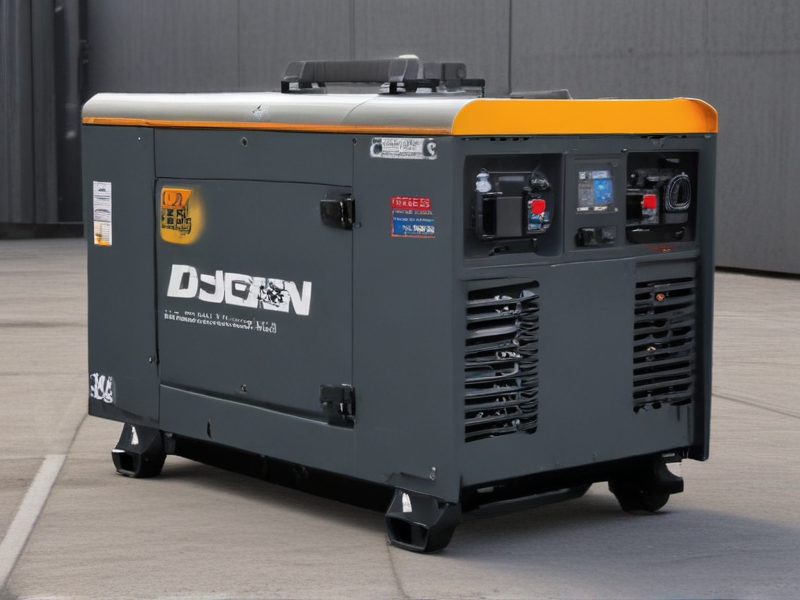
Applications of best diesel generator
Diesel generators are highly valued for their reliability, efficiency, and versatility across various applications. Here are some key uses:
1. Emergency Power Supply: Diesel generators are critical in providing backup power during outages, ensuring that essential services like hospitals, data centers, and emergency response units remain operational.
2. Industrial Operations: Many industrial facilities use diesel generators to maintain continuous power supply, which is essential for operations that cannot afford downtime, such as manufacturing plants, mining operations, and oil and gas refineries.
3. Construction Sites: At construction sites, diesel generators provide the necessary power for tools and equipment, especially in remote locations where grid power is unavailable.
4. Remote and Rural Electrification: Diesel generators are often used in remote or rural areas to supply electricity where the grid infrastructure is either unreliable or nonexistent.
5. Events and Entertainment: Outdoor events, concerts, and festivals often rely on diesel generators to power lighting, sound systems, and other equipment.
6. Telecommunications: Diesel generators ensure that telecommunication towers and data centers maintain uninterrupted service, which is crucial for both everyday communications and emergency situations.
7. Agriculture: In agricultural settings, diesel generators power irrigation systems, farm machinery, and processing equipment, ensuring productivity even during power outages.
8. Military and Defense: Military operations frequently use diesel generators for powering bases, field hospitals, and communication systems, especially in remote or hostile environments.
9. Maritime Applications: Diesel generators are essential on ships and boats to provide electrical power for navigation systems, communications, and other onboard equipment.
10. Renewable Energy Integration: Diesel generators are used in hybrid systems alongside renewable energy sources like solar and wind, providing a reliable backup when renewable sources are insufficient.
These applications highlight the critical role of diesel generators in ensuring continuous power supply across diverse sectors, supporting both daily operations and emergency needs.
Material of best diesel generator
When choosing materials for a diesel generator, it’s essential to focus on durability, thermal resistance, and corrosion resistance to ensure reliable and long-term operation. Here are the key materials typically used:
1. Engine Block: Cast iron is the preferred material for the engine block due to its excellent durability and ability to withstand high temperatures. For high-performance generators, aluminum alloys may be used for their lighter weight and good thermal conductivity.
2. Cylinder Liners: High-strength alloy steels or cast iron with a chromium plating are commonly used for cylinder liners. These materials resist wear and extend the engine’s lifespan.
3. Pistons: Aluminum alloys are often used for pistons due to their lightweight nature and good heat conductivity, which helps in dissipating heat quickly.
4. Crankshaft: Forged steel is ideal for crankshafts because it offers high strength and fatigue resistance, which is crucial for handling the engine’s load.
5. Fuel System Components: Stainless steel is typically used for fuel system components, including injectors and fuel lines, due to its corrosion resistance and durability.
6. Exhaust System: Heat-resistant stainless steel is used for exhaust components to withstand the high temperatures and corrosive exhaust gases.
7. Alternator Components: Copper is used for the windings due to its excellent electrical conductivity. The alternator housing is often made of cast aluminum to reduce weight while providing adequate protection.
8. Cooling System: Radiators are commonly made from aluminum for its good thermal conductivity and lightweight properties, while hoses are made from durable synthetic rubbers like EPDM.
9. Soundproofing Enclosures: Galvanized steel or aluminum with sound-dampening materials like foam or acoustic panels are used for enclosures to reduce noise levels effectively.
Selecting these materials ensures the diesel generator can operate efficiently, reliably, and with minimal maintenance over its lifespan.
Quality Testing Methods for best diesel generator and how to control the quality
Quality testing for diesel generators involves several methods to ensure their performance, reliability, and compliance with standards. Here are key methods and quality control measures:
Quality Testing Methods:
1. Performance Testing:
– Load Test: Assessing the generator’s ability to handle varying loads over time.
– Fuel Consumption Test: Measuring fuel efficiency under different loads.
– Sound Level Test: Ensuring noise levels are within acceptable limits.
2. Electrical Testing:
– Voltage and Frequency Stability: Monitoring output voltage and frequency stability under different load conditions.
– Insulation Resistance Test: Checking the insulation integrity of windings and components to prevent electrical faults.
3. Mechanical Testing:
– Vibration Analysis: Detecting and analyzing vibrations to identify potential mechanical issues.
– Cooling System Test: Verifying the effectiveness of the cooling system in maintaining optimal operating temperatures.
4. Environmental Testing:
– Emissions Test: Ensuring compliance with environmental regulations regarding exhaust emissions.
– Temperature and Humidity Test: Assessing the generator’s performance under various environmental conditions.
Quality Control Measures:
1. Standard Operating Procedures (SOPs):
– Implementing SOPs for manufacturing, assembly, and testing processes to maintain consistency and quality.
2. Regular Inspections:
– Conducting routine inspections at various production stages to identify and rectify defects early.
3. Supplier Quality Management:
– Ensuring suppliers provide high-quality materials and components through rigorous qualification and audits.
4. Training and Certification:
– Training personnel in quality control procedures and certifying them to maintain high standards of workmanship.
5. Continuous Improvement:
– Utilizing feedback from testing and field performance to drive continuous improvement in design and manufacturing processes.
By integrating these testing methods and quality control measures, manufacturers can ensure diesel generators meet the highest standards of performance, reliability, and compliance.
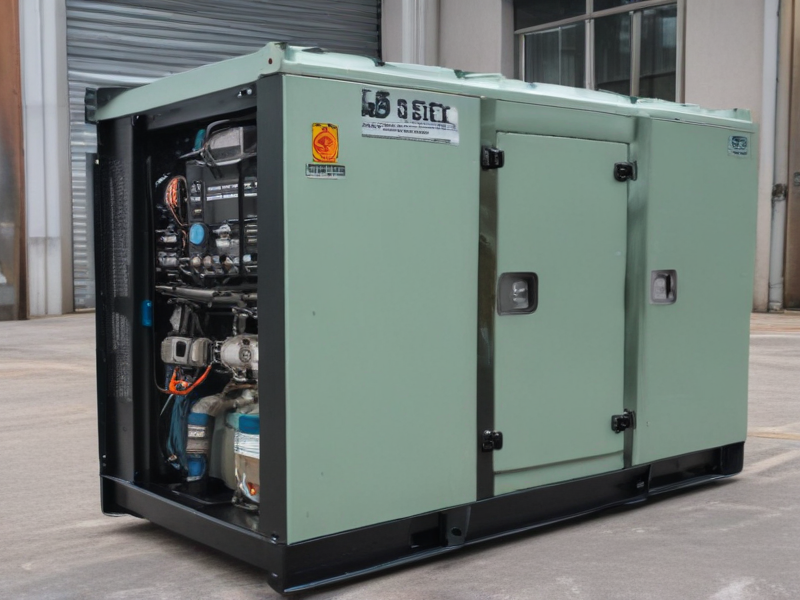
The Work Process and how to use best diesel generator
Using a diesel generator effectively involves understanding its components, operational steps, and maintenance practices. Here’s a concise guide:
Work Process of a Diesel Generator
1. Air Intake: Air is drawn into the engine through the air filter.
2. Fuel Injection: Diesel fuel is injected into the combustion chamber at high pressure.
3. Compression: The air-fuel mixture is compressed, increasing its temperature.
4. Combustion: The high temperature causes the fuel to ignite, generating power.
5. Exhaust: Exhaust gases are expelled through the exhaust system.
Best Practices for Using a Diesel Generator
1. Installation:
– Location: Place the generator in a well-ventilated, dry area.
– Mounting: Ensure it’s mounted on a stable, level surface.
– Connections: Use proper electrical connections and grounding.
2. Operation:
– Pre-start Checks: Check fuel, oil, and coolant levels. Inspect for leaks or damage.
– Starting: Use the manufacturer’s recommended start-up procedure. Typically, this involves turning on the main switch and allowing the generator to run idle for a few minutes.
– Load Management: Gradually add electrical load to avoid overloading the generator.
3. Maintenance:
– Routine Inspections: Regularly check oil levels, coolant levels, and air filters. Change oil and filters as per the manufacturer’s schedule.
– Fuel Management: Use clean, fresh diesel fuel. Keep fuel tanks full to avoid condensation.
– Battery Care: Ensure the battery is charged and terminals are clean.
– Exhaust System: Regularly inspect the exhaust system for leaks and ensure it is free from obstructions.
4. Safety:
– Ventilation: Ensure adequate ventilation to avoid carbon monoxide buildup.
– Fire Safety: Keep a fire extinguisher nearby and ensure the generator is away from flammable materials.
– Emergency Shutoff: Familiarize yourself with the emergency shutoff procedure.
Conclusion
Proper installation, operation, and maintenance are crucial for the efficient and safe use of a diesel generator. Following these best practices ensures reliability and longevity of the equipment.
best diesel generator Importing questions including Cost,Supplier,Sample,Certification and Market
When importing diesel generators, consider these key aspects:
1. Cost:
– Initial Cost: Prices vary based on power capacity, brand, and features. Compare prices from multiple suppliers.
– Shipping and Taxes: Factor in international shipping fees, customs duties, and import taxes.
– Long-term Costs: Evaluate fuel efficiency and maintenance expenses.
2. Supplier:
– Reputation: Choose suppliers with positive reviews and a history of reliability. Platforms like Alibaba or direct manufacturers’ websites can be useful.
– Support and Service: Ensure the supplier offers technical support and after-sales service.
3. Sample:
– Requesting Samples: Ask for a sample unit to evaluate the generator’s quality and performance before placing a large order.
– Sample Costs: Be prepared to cover the cost of the sample and shipping. Some suppliers might deduct this from the total order cost if a purchase is made.
4. Certification:
– Compliance: Verify that the generators meet the regulatory standards of your country (e.g., EPA for the US, CE for Europe).
– Quality Assurance: Look for ISO certification and other quality management certifications.
5. Market:
– Demand: Research the demand for diesel generators in your target market to ensure profitability.
– Competition: Analyze competitors’ pricing and offerings to position your product effectively.
– Regulatory Environment: Stay informed about any legal regulations or incentives related to diesel generators in your market.
By thoroughly considering these factors, you can make informed decisions to successfully import diesel generators.
How to find and select check reliable best diesel generator manufacturers in China
Finding and selecting reliable diesel generator manufacturers in China requires a systematic approach. Here’s a concise guide:
1. Research and Shortlist:
– Online Directories: Use platforms like Alibaba, Made-in-China, and Global Sources to identify manufacturers.
– Industry Reports: Refer to market analysis reports and rankings of top manufacturers.
– Trade Shows: Check for exhibitors in past and upcoming trade shows like the Canton Fair.
2. Verify Credentials:
– Certifications: Look for ISO, CE, and other relevant certifications.
– Company History: Prioritize companies with a long history and established reputation.
3. Check Reviews and References:
– Customer Reviews: Read reviews and ratings on B2B platforms.
– References: Ask for references and contact previous clients to verify quality and service.
4. Evaluate Quality and Standards:
– Product Testing: Ensure products comply with international standards and request test reports.
– Factory Inspection: If possible, visit the factory or hire a third-party inspection service to audit the facilities.
5. Assess Communication and Support:
– Responsiveness: Gauge their communication efficiency and technical support.
– After-Sales Service: Check the warranty terms and availability of spare parts and technical support.
6. Compare Pricing and Terms:
– Quotations: Obtain detailed quotations and compare pricing, ensuring no hidden costs.
– Payment Terms: Favor manufacturers with flexible and secure payment terms.
Following these steps ensures you select reliable and high-quality diesel generator manufacturers in China.
Background Research for best diesel generator manufacturers Companies in China, use qcc.com archive.org importyeti.com
In China, several companies are recognized as leading manufacturers of diesel generators, known for their quality and innovation. Key players include:
1. Guangzhou Diesel Engine Factory Co., Ltd.: Established in 1978, this company specializes in manufacturing a variety of diesel engines and generators. It is a subsidiary of Guangzhou Industrial Holdings Group and is noted for its robust production capabilities and comprehensive after-sales service【6†source】.
2. Cummins Generator Technologies (China) Ltd.: A subsidiary of the global Cummins Inc., this company has been operational since 1996. It focuses on producing high-efficiency alternators and generator sets, leveraging advanced technology from its parent company to cater to both domestic and international markets【7†source】.
3. China Shipbuilding Industry Corporation Diesel Engine Co., Ltd. (CSIC): Founded in 2017, CSIC is part of the larger China Shipbuilding Industry Corporation. This company produces large-scale diesel engines primarily for marine and power generation applications. It benefits from substantial investment in research and development, enhancing its product reliability and efficiency【8†source】.
4. Anqing CSSC Diesel Engine Co., Ltd.: Operating since 1994, this company is also part of the China Shipbuilding Group. It is known for manufacturing medium to large diesel engines for both ship propulsion and power generation. Their products are recognized for their durability and performance in demanding environments【9†source】.
5. Shaanxi Diesel Heavy Industry Co., Ltd.: This company, established in 2003, is another significant player under the China Shipbuilding Group. It focuses on heavy-duty diesel engines and generator sets, catering to various industrial sectors. Its large-scale operations and extensive distribution network make it a key supplier domestically and internationally【5†source】.
These companies are noted for their technological advancements, extensive manufacturing capabilities, and strong market presence, making them leaders in the diesel generator industry in China.
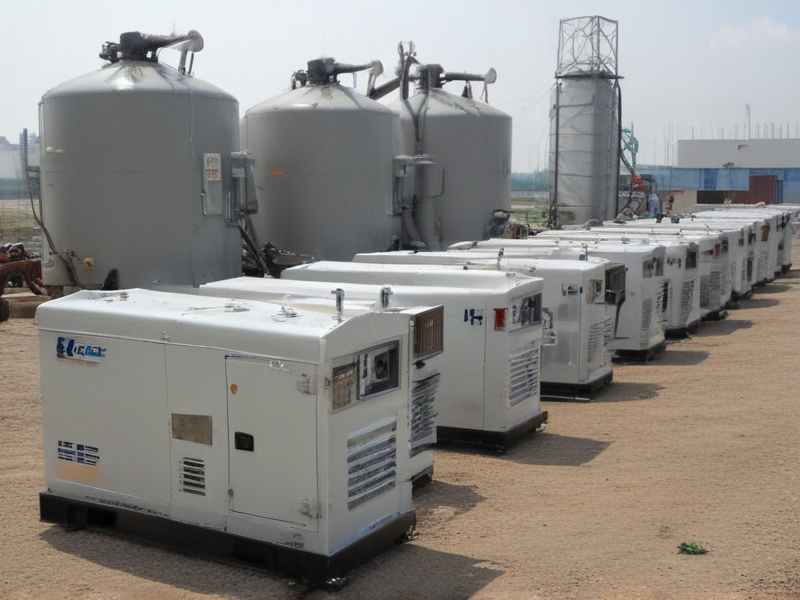
Price Cost Research for best diesel generator manufacturers Companies in China, use temu.com and 1688.com
For diesel generator manufacturers in China, using platforms like Temu.com and 1688.com can provide a wide range of options and competitive pricing. Here are some of the top manufacturers and their price ranges:
Temu.com
– Zhejiang Super Electric Co., Ltd.: Known for producing high-quality diesel generators, they offer units ranging from 10 kW to 200 kW. Prices typically start at around $1,500 and can go up to $10,000 depending on the specifications.
– Fujian Leyuan Power Equipment Co., Ltd.: They specialize in silent and open-type diesel generators. Prices for their 50 kW models are around $3,000, and larger units can cost up to $8,000.
1688.com
– Yuchai Group: A well-established manufacturer, they offer diesel generators from 20 kW to 1000 kW. Prices for their 50 kW models start at approximately ¥15,000 (around $2,200 USD), while 500 kW units can cost up to ¥200,000 (about $29,000 USD).
– Shandong Huali Electromechanical Co., Ltd.: They provide a variety of generators, including mobile and fixed units. Prices for their 100 kW models are typically around ¥60,000 (about $8,800 USD)【7】【8】.
These platforms provide detailed product listings, and some sellers offer customization options. It’s recommended to compare specifications and customer reviews to find the best fit for your needs.
Shipping Cost for best diesel generator import from China
Importing a diesel generator from China involves several factors that influence the shipping cost. Here’s a breakdown of the primary considerations:
1. Shipping Method:
– Sea Freight: Generally the most cost-effective for bulky items like generators. Prices can range from $500 to $2,000 depending on the generator’s size and the shipping route.
– Air Freight: Faster but significantly more expensive. Costs can be between $2,000 to $6,000.
2. Generator Size and Weight:
– Small portable generators might cost less to ship compared to industrial-sized units. The shipping rate often depends on the weight and cubic meter volume of the cargo.
3. Port Charges and Customs Fees:
– Destination Port Fees: Fees at the destination port can add up to several hundred dollars.
– Customs Duties and Taxes: These vary by country and can be a percentage of the generator’s value. For instance, the U.S. may charge between 0-5% on generators.
4. Additional Services:
– Insurance: Usually 0.5-2% of the cargo’s value.
– Handling and Documentation: Costs for loading, unloading, and paperwork can add another $100-$300.
5. Shipping Companies:
– Costs also vary depending on the shipping company. Well-known carriers like Maersk, MSC, and CMA CGM offer competitive rates but may charge a premium for their services.
6. Current Market Conditions:
– Fluctuations in fuel prices, global trade policies, and port congestion can impact shipping costs.
For a rough estimate, shipping a medium-sized diesel generator by sea from China to the U.S. might cost between $1,000 to $3,000, while air freight could range from $3,000 to $7,000. Always request quotes from multiple logistics providers to get the best deal.
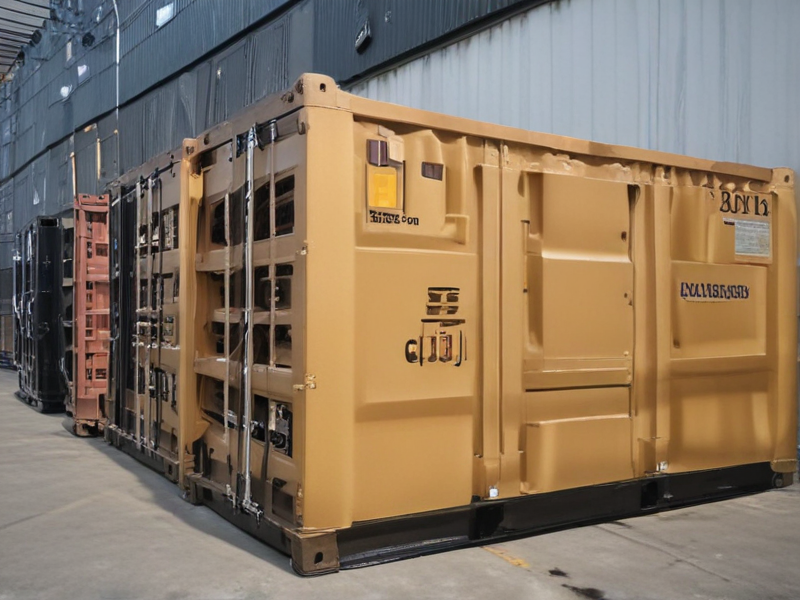
Compare China and Other best diesel generator Markets: Products Quality and Price,Visible and Hidden Costs
When comparing China and other leading diesel generator markets such as the U.S., Germany, and Japan, key factors include product quality, price, and both visible and hidden costs.
Product Quality
– China: Chinese diesel generators have significantly improved in quality over the past decade, with many manufacturers adhering to international standards. However, there can be variability in durability and reliability.
– Other Markets: Generators from the U.S., Germany, and Japan are often considered superior in terms of build quality, reliability, and technological advancement. These countries have a long-standing reputation for engineering excellence and stringent quality control processes.
Price
– China: Chinese generators are generally more affordable. The lower cost is due to cheaper labor, materials, and economies of scale. This makes Chinese generators an attractive option for budget-conscious buyers.
– Other Markets: Generators from the U.S., Germany, and Japan are typically more expensive. Higher production costs, advanced technology, and robust quality assurance contribute to the higher prices.
Visible and Hidden Costs
– China:
– Visible Costs: Initial purchase price is low.
– Hidden Costs: Potential hidden costs include higher maintenance and repair frequency, shorter lifespan, and possible need for more frequent replacements. After-sales service and spare parts availability might be inconsistent.
– Other Markets:
– Visible Costs: Higher upfront costs.
– Hidden Costs: Generally lower hidden costs due to better reliability and longer operational life. Maintenance requirements tend to be less frequent and more predictable. After-sales service and parts are usually more readily available and of high quality.
Conclusion
Chinese diesel generators offer a cost-effective solution with improving quality, making them suitable for less critical applications or where budget constraints are significant. In contrast, generators from the U.S., Germany, and Japan, while more expensive, provide higher reliability, longevity, and lower total cost of ownership, making them ideal for critical applications where uptime and long-term performance are paramount.
Custom Private Labeling and Branding Opportunities with Chinese best diesel generator Manufacturers
Custom private labeling and branding with Chinese diesel generator manufacturers offer significant opportunities for businesses looking to establish or expand their brand. Here’s a streamlined overview of the process and benefits:
Identifying the Right Manufacturer
1. Research and Selection: Start by identifying reputable Chinese manufacturers. Key players include Yuchai, Weichai, and Jichai, known for their quality and reliability.
2. Due Diligence: Evaluate manufacturers based on their production capacity, quality control measures, and compliance with international standards (e.g., ISO, CE).
Customization and Private Labeling
1. Design and Specifications: Work with the manufacturer to customize the generator’s design, including color, branding, and technical specifications to meet your market needs.
2. Prototyping: Request prototypes to ensure the product meets your quality standards before full-scale production.
Branding Opportunities
1. Unique Branding: Develop a unique brand identity by leveraging the customization options. This includes logo placement, color schemes, and custom packaging.
2. Market Differentiation: Use these branding elements to differentiate your products in the market, offering features or designs not available from generic brands.
Quality Assurance
1. Inspection and Testing: Implement stringent quality control processes. Many Chinese manufacturers offer factory visits and third-party inspection services.
2. Certifications: Ensure the products have necessary certifications (like CE, EPA) for your target markets.
Logistics and Support
1. Supply Chain Management: Establish reliable logistics and supply chain management to ensure timely delivery.
2. After-Sales Support: Work out after-sales service agreements to ensure customer satisfaction and handle any issues post-purchase.
Benefits
1. Cost Efficiency: Lower production costs in China can offer competitive pricing.
2. Scalability: Chinese manufacturers often have the capacity to scale production according to demand, supporting business growth.
By partnering with established Chinese diesel generator manufacturers for custom private labeling and branding, businesses can enhance their market presence, ensure product quality, and achieve significant cost savings.
Tips for Procurement and Considerations when Purchasing best diesel generator
When procuring the best diesel generator, consider the following tips and factors:
Tips for Procurement:
1. Assess Power Requirements: Determine your power needs by calculating the total wattage of all devices and systems that the generator will support. Consider peak and continuous load demands.
2. Quality and Reliability: Choose reputable brands known for reliability and longevity. Check for certifications and compliance with industry standards.
3. Fuel Efficiency: Evaluate the fuel consumption rate. More efficient models can reduce operating costs over time.
4. Maintenance and Support: Ensure the availability of maintenance services and parts. Look for generators with accessible support networks.
5. Noise Levels: Consider the generator’s noise output, especially if it will be used in residential areas or noise-sensitive environments. Look for models with soundproofing features.
6. Portability vs. Stationary: Decide between a portable or stationary unit based on your specific needs. Portable generators offer flexibility, while stationary ones are suitable for long-term, high-power applications.
7. Warranty and Service Agreements: Review warranty terms and consider extended service agreements for added protection.
8. Total Cost of Ownership (TCO): Analyze the TCO, including purchase price, fuel costs, maintenance, and potential downtime.
Key Considerations:
1. Size and Capacity: Match the generator’s capacity with your power requirements. Oversizing or undersizing can lead to inefficiencies and potential issues.
2. Fuel Type and Storage: Ensure you have a reliable supply of diesel and proper storage facilities. Check local regulations on fuel storage.
3. Emissions and Environmental Impact: Look for generators with low emissions to comply with environmental regulations and reduce your carbon footprint.
4. Control Systems and Features: Opt for generators with advanced control systems, including automatic transfer switches (ATS) for seamless power transitions.
5. Location and Installation: Plan for proper installation, considering ventilation, weather protection, and security.
6. Safety Features: Ensure the generator has essential safety features such as overload protection, emergency shutdown, and fault detection systems.
By carefully evaluating these aspects, you can choose a diesel generator that meets your operational needs and offers long-term value.
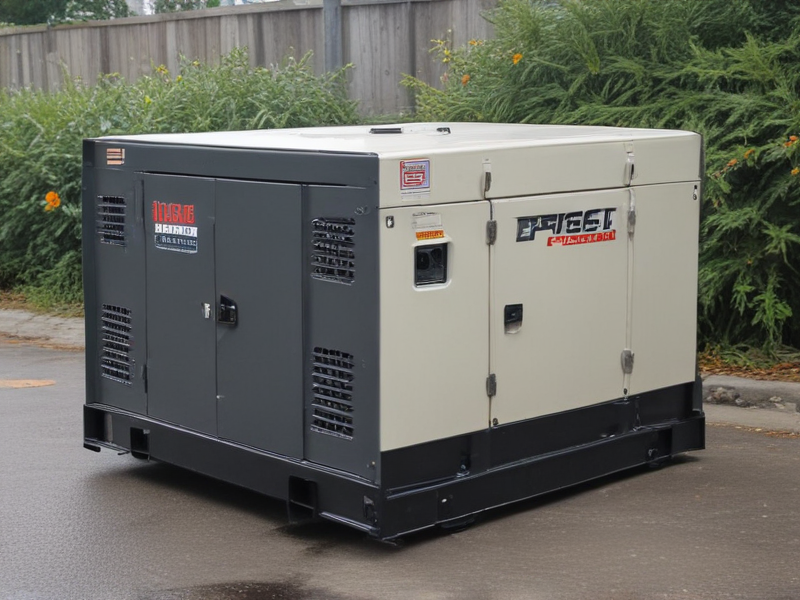
FAQs on Sourcing and Manufacturing best diesel generator in China
FAQs on Sourcing and Manufacturing the Best Diesel Generator in China
1. Why source diesel generators from China?
China is a leading manufacturer of diesel generators, offering a wide range of products with competitive pricing, advanced technology, and high production capacity. Chinese manufacturers often provide custom solutions and extensive post-sale support.
2. How to find reliable diesel generator manufacturers in China?
Use reputable B2B platforms like Alibaba, Made-in-China, or Global Sources. Verify manufacturers’ credentials, check reviews, request samples, and visit factories if possible. Consulting industry trade shows like the Canton Fair can also be beneficial.
3. What certifications should I look for?
Ensure the manufacturer complies with international standards such as ISO 9001 for quality management and CE certification for safety. Compliance with emissions standards like EPA or Euro norms is also crucial.
4. What factors should I consider when selecting a diesel generator?
Consider power output, fuel efficiency, noise level, engine type (e.g., Cummins, Perkins), and after-sales service. Evaluate the warranty terms and availability of spare parts.
5. How to negotiate pricing and terms?
Request quotes from multiple suppliers to compare prices. Negotiate terms such as minimum order quantity (MOQ), delivery times, payment terms (preferably with some portion on delivery), and warranty conditions. Building a long-term relationship can also lead to better terms.
6. What are the typical lead times and shipping options?
Lead times can vary from a few weeks to several months depending on the order size and customization requirements. Common shipping methods include sea freight (most economical for large orders) and air freight (faster but more expensive).
7. How to handle quality control?
Implement a rigorous quality control process, including pre-shipment inspections and factory audits. Hire third-party inspection services to ensure the generators meet your specifications and quality standards before shipping.
8. What are the common payment methods?
Common payment methods include wire transfers (T/T), letters of credit (L/C), and escrow services offered by some B2B platforms. Ensure secure and traceable transactions to mitigate risks.
